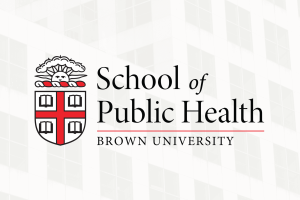Department of Epidemiology
News
Recent Epidemiology News
February 11, 2026
News from Brown
Leaders gather for an authentic, lively conversation about health care policy in Rhode Island
A summit hosted by Brown University’s School of Public Health brought together policymakers, researchers, health care leaders and community stakeholders to discuss pressing health policy issues facing the state.
February 4, 2026
News from Brown
Rhode Islanders report challenges with cost of living, access to affordable housing and nutritious food
Results from this year’s R.I. Life Index survey, a partnership between Blue Cross and Blue Shield of Rhode Island and the Brown University School of Public Health, also reflected rising concerns about health care access.
January 30, 2026
News from Brown
Childhood lead exposure associated with increased depressive symptoms in adolescence
A federally funded study led by Brown University researchers links increased childhood blood lead concentrations with increased depressive symptoms in adolescence, with larger increases when exposure occurred later in childhood.
December 11, 2025
News from SPH
Classroom to community: Brown students quantify ‘environmental comfort’ across Rhode Island
Students in PHP1720 rolled up their sleeves this semester, conducting community-engaged research at 180 local sites, from downtown Providence to the new Pawtucket soccer stadium, revealing disparities in noise pollution and other public health concerns.
November 26, 2025
News from Brown
Expanding seasonal immunization access could minimize off-season RSV epidemics
Researchers found differences in how respiratory syncytial virus spreads among children in rural versus urban communities and concluded that year-round immunizations would minimize risks of large seasonal outbreaks.
November 21, 2025
News from SPH
Inside the global scramble to build and deliver COVID vaccines
New book from Pandemic Center’s Seth Berkley recounts how scientific breakthroughs, supply chain bottlenecks and political battles shaped the pandemic response.
November 12, 2025
News from SPH
Brown study finds frequent, risky pain medication combinations following hip fracture
A new study linking pharmacy and Medicare data sheds light on pain management regimens for hip fracture patients in rehabilitation, and raises concerns about potentially dangerous drug-drug interactions.
November 4, 2025
News from Brown
Brown team to co-lead $12M study to improve well-being of people who use drugs in New England
With a focus on Massachusetts, Rhode Island and Vermont, a project funded by the National Institute on Drug Abuse will analyze trends in drug use and barriers to care with the goal of strengthening treatment.
October 20, 2025
News from Brown
Brown professor emerita Dr. Maureen Phipps elected to the National Academy of Medicine
The longtime professor at Brown’s Warren Alpert Medical School and School of Public Health received the honor in recognition of her leadership in advancing reproductive and maternal health.
October 15, 2025
News from SPH
People-Centered Science
In an era where the value of scientific research is increasingly undermined, Brown University public health scholars remain steadfast, showing how high-quality public health science protects people, shapes policy and transforms the health of our nation.
October 14, 2025
News from SPH
The Return of a Preventable Disease: Measles, misinformation and the crisis at the CDC
Measles has been declared eliminated in the U.S. for 25 years, but a surge in cases is threatening that status. Jennifer Nuzzo, director of the Pandemic Center at Brown University, joined Humans in Public Health to break down the outbreak, the chaotic federal response and how her team's tracker is stepping in to provide reliable, life-saving data.
October 6, 2025
News from SPH
Empowering communities to address Africa’s dental crisis
With a severe shortage of dentists across sub-Saharan Africa, the mOral Health course is training local community health workers to provide preventive care. The initiative, aimed at building a sustainable, grassroots workforce, marks the first time the WHO has formally endorsed an oral health resource in its nearly 80-year history.
